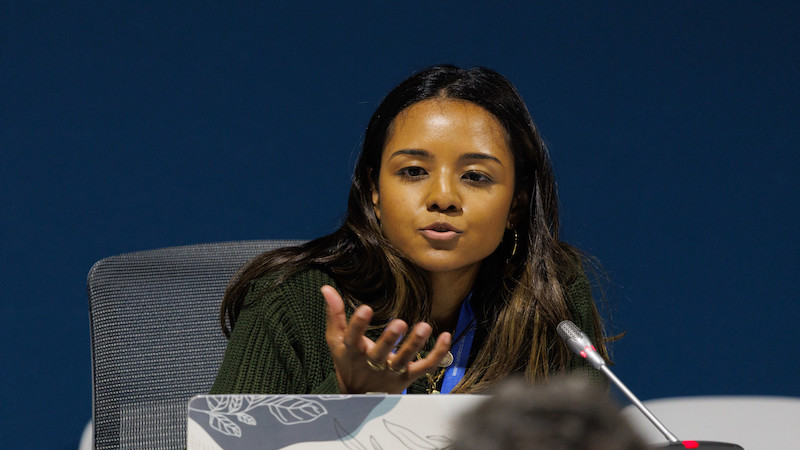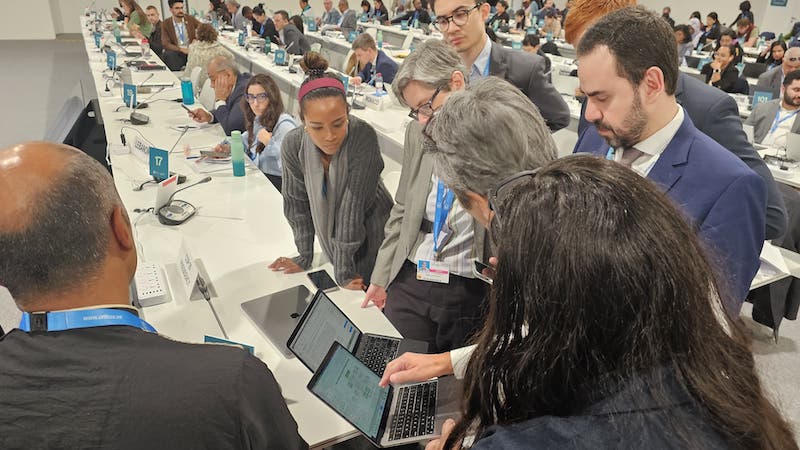Comment: Rules finalised at COP29 will make sure carbon credits enable more ambitious climate goals while delivering benefits to local communities
Kristin Qui is a climate negotiator from Trinidad and Tobago and a former member of the Article 6.4 Supervisory Body which developed the UN carbon market standards.
I became a climate negotiator because the place I call home, Trinidad and Tobago, is under threat from climate change. The Paris Agreement and the 1.5°C temperature goal were necessary for the survival of small island states like mine.
When I first got involved in UN climate negotiations in 2017, the rules for a global carbon market under the Paris Agreement were still taking shape.
My role then was as an outsider to the process. I was focused on ensuring that carbon credits could not be double-counted – a flaw of the previous Kyoto Protocol system that many of us were determined to reform.
COP29 Bulletin Day 1: Carbon market rules adopted, US reassures on emissions
We wanted this new UN carbon market to lead to real reductions in greenhouse gas emissions, making it easier to reach the goals of the Paris Agreement. My focus was on ensuring that strong environmental and social protections were central to the new system.
That’s why I’ve spent the last three years as a technical expert on a UN body developing this market, in addition to my day job. I’ve sacrificed precious time with my newborn son to make sure that projects reducing emissions under this market operate under robust safeguards for communities and the environment.
This time, we had to get it right. This meant setting mandatory checks for projects against strong environmental and human rights protections.
Protecting Indigenous rights
The safeguards we’ve established, under what we call the “Sustainable Development Tool”, require projects to follow both local laws and international standards. This dual approach ensures comprehensive protection, respecting local customs while adhering to global best practices.
Indigenous rights are central to these safeguards. They require projects to contribute positively to Indigenous communities, ensuring respect for their dignity and well-being. Negative impacts on health or safety must be avoided — this isn’t optional, it’s mandatory.
One of the strongest protections for Indigenous Peoples is the requirement for Free, Prior, and Informed Consent. This means no project can go ahead without explicit, informed agreement from Indigenous Peoples. It isn’t just a box to tick — it’s a meaningful and ongoing dialogue that respects cultural protocols. Indigenous communities have the right to say “no”, and that right is non-negotiable.
The checks we’ve put in place look at the different ways projects might affect people and the environment, to make sure no harm is done. They also help us clearly measure how these projects contribute to t
Read More


